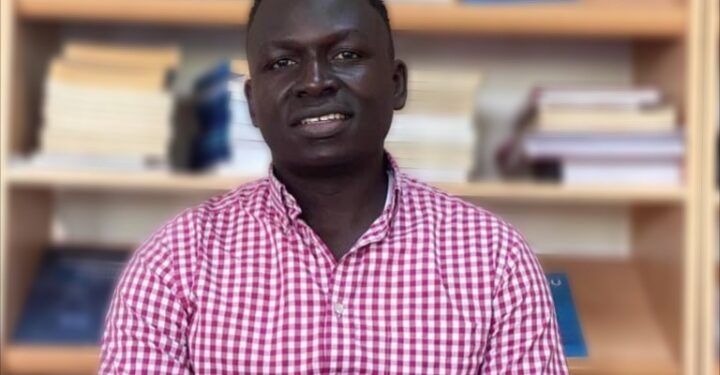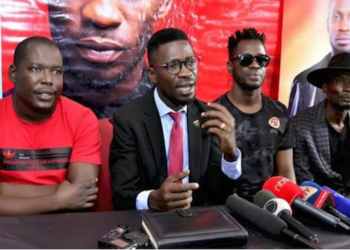I recently stumbled upon an article on the website of the Brookings Institution, which is an American think-tank. The title of this article is, “Could Africa Replace China as the world’s source of rare earth mineral elements?” This title gives away its content. Currently, the production of these rare earth minerals have remained concentrated in China, which is a big concern for the West and its allies. China controls 60% of global production of rare earth minerals and 85% of the processing capacity that gives China an upper hand in the global market.
For the reader who doesn’t know what rare minerals are, can understand them from the point of view of what they are used for. Rare earth elements are a group of 17 critical metals used in electronics (computers, televisions and smartphones), in renewable energy technologies (wind turbines, solar panels, and electric vehicle batteries), and in the defence sectors (jet engines, missile guidance and defence systems, satellites, especially in GPS equipment). In this respect, whoever controls the production and processing of these minerals, will also control critical future technologies. This is why the West does not seem happy with China’s monopoly over these minerals, which they perceive as the biggest geopolitical threat to Western market monopoly.
However, besides China, Africa is a home to these critical minerals but due to lack of geopolitical policy approach, it lags behind in the race. In my opinion, African leaders are not strategically thinking to approach the significance of rare earth minerals in geopolitics and its benefits for the Africans. Africa’s full potential in rare earths minerals is largely untapped given low levels of exploration. African governments and the private sectors lack sufficient financial strength to explore the untapped rare earth minerals. As a result, it’s foreign governments and companies are doing most of these exploration, which is not in the best interest of the continent.
For example, in 2022, Mkango Resources, a Canadian exploration firm, announced that its Songwe Hill rare earth mine in Malawi is expected to commence production in 2025. Bannerman Energy, an Australian firm, announced that it has acquired a 41.8% stake in Namibia Critical Metals, which owns 95% of the Lofdal heavy rare earth exploration operations. The mine produces 2,000 tons per year of rare earth oxides and has rich deposits of two of the most valuable heavy rare earth metals—dysprosium and terbium.
In 2020, the Angolan subsidiary of Pensana Rare Earths, a British firm, received exclusive mining rights for the Longonjo Mine, a rare earth exploration operation, for a 35-year-time period. These deposits are not insignificant considering Africa’s small share of global exploration. Perhaps, the Western monopolization of the mining operation in the African continent is threatening its geopolitical leverage in the global market.
One very frightening statistic we have to bear at the back of our minds is that for the next 3 decades, the world will consume more metals and minerals than all the metals and minerals we have ever consumed for the last 70,000 years, since the beginning of humankind.
One major reason I believe that these rare earth minerals will not transform the Geopolitical bargaining position of most African governments and the livelihood of Africans is due to the weak governance and political instabilities. Take this for an example, the Democratic Republic of Congo is responsible for 70% of the global production of cobalt – a rare earth mineral that’s vital for batteries in most electronics.
However, Glencore plc, a Swiss multinational commodity trading and mining company, is listed on the London stock exchange, which dominates cobalt exploitation in DRC. The second biggest company that dominates cobalt exploitation is China Molybdenum Group Limited, that’s listed on the Hong Kong Stock Exchange and Shanghai Stock Exchange.
The Congolese cobalt situation is interesting, like one man put it, “China exploits the land for rare earth minerals, and the Congolese children provide cheap labour.” China and all these other Western actors do not process the cobalt in Congo, which would be good for the Congolese, in order to make the added export value. China and these Western companies export the raw cobalt and do the processing back in their homes. This means that African people are left without any skill development in this rare earth’s supply chain. The children simply provide cheap labour, which is a major concern and an open violation of UNICEF laws.
However, when it comes to the rare earth metals market, there is ever-growing geopolitical competition between China and Western countries for the domination of the mining sector in the African continent. But now the question arises, Will Africa create a bargaining chip in the rare earth mineral sector in future? despite the domination of the mining sector by foreign powers such as China and Western nations. From the geopolitical standpoint, Africa as a continent can outmatch both China and the West by formulating a new strategic approach towards this key billion dollars mining sector. Nonetheless, at the moment, key African nations such as DRC, Namibia, Uganda, and Angola must focus on developing a sound mineral policy through inter-state cooperation in order to get geopolitical leverage in the global mineral market.
African countries are too disorganized to maximize the benefits that will come with rare earth minerals that could be found in most countries. The solution is that African countries need to have the right policies in place that will minimize the “hot money” that comes in and leaves immediately. Most Africans Countries can enforce the right mineral policy when they have it. In Uganda, we have a lot of misinformation surrounding its minerals.
Samuel Obedgiu
Agricultural Biotechnologist and Environmental Activist
Do you have a story in your community or an opinion to share with us: Email us at editorial@watchdoguganda.com













